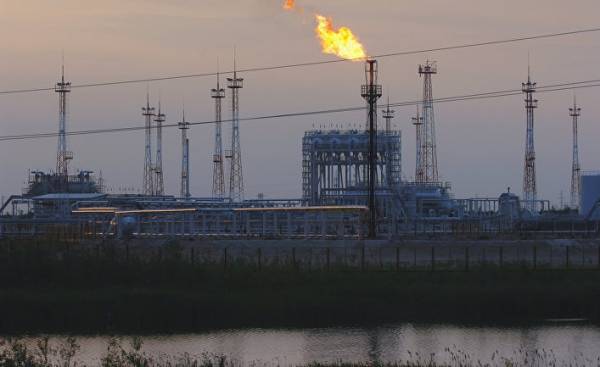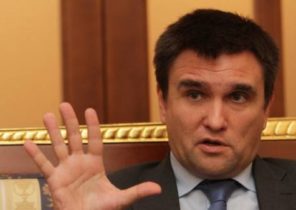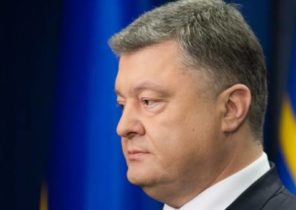
Russia — one of the world’s largest suppliers of oil, whose budget rests on commodity exports — will be beneficial to the renewal of the Covenant OPEC to support oil prices, but this time it will be harder to negotiate and the terms of participation of the countries-oil producers may change, analysts say.
The main obstacle for the extension of the agreement on production cuts of OPEC and several countries outside of the cartel, whose term expires in June, is the growth of shale oil production in the U.S., which may negate the results of the December Pact.
“The profitability of extending the agreement for Russia’s future depends on its scale and duration, the evaluation of the capacity of new arrangements to raise the price to $60 per barrel or higher in the absence of cooperation with US oil companies,” said oil sector analyst at Sberbank CIB Valery Nesterov.
In March, oil prices lost nearly half of the growth provided by OPEC agreements to cut oil production to 1.8 million barrels per day in the first half. Quotes of Brent crude oil fell to around $50 per barrel because of the growth of oil reserves in the United States.
Oil production in the United States from mid-2016 rose more than 8 percent and today exceeds 9.1 million barrels per day.
“If at the time of the discussion of the extension of the agreement at the OPEC meeting in may will be apparent that oil production in the US will return to significant growth, then the extension of the agreement will have the meaning as OPEC and other countries in this scenario will lose market share in favor of American producers,” — said the Director of oil and gas analysis branch at Gazprombank Evgenia dyshlyuk.
Russia’s participation in the new Covenant will be difficult in the second half to reduce and even freeze production at current levels will be very difficult, said the head of analytical Department of investment company Region Valery Weisberg.
“Therefore, to join the new agreement, Russia will be able only in terms of Iran, that is having a guaranteed space to increase production,” he said.
By mid-March, Russia reduced the production of raw materials in the 160,000 barrels per day and by the end of April, had planned to reach the target level of reduction of 300,000 barrels per day.
Faith with reservations
Immediately after the deal with OPEC at the end of last year, Russia appreciated the benefit of 1.75 trillion rubles for the budget and the 750 billion — for oil companies.
Russian President Vladimir Putin then promised continuing cooperation with the cartel for the common result.
“Renewing the Covenant for the benefit of Russia, if you do not have to take on additional commitments to reduce production. Stop marginally profitable wells in the fields that do not fall under the benefits of mineral extraction tax or export duty is justified if it gives a bonus of $8-10 to the price of oil,” said URALSIB analyst Alexei Kokin.
Vagit Alekperov, the head of the largest private Russian oil companies LUKOIL, said in mid-March, he sees sense in the extension of the agreement, although last year he said that the deal with OPEC does not make sense.
The readiness to cut production and said the average size of the company.
“We are ready to cut production volumes, which lead to the achievement of financial results that exceed our expectations (due to the growth of prices against the increase in production volumes), but without prejudice to the production in future”, — told Reuters the press service of Tatneft.
The need for the extension of the agreement depends on many factors, and closer to the OPEC meeting at the end of may will have reason to discuss this issue, says the company.
“The level of oil prices at $50 per barrel comfortable for the company, it is certainly better than the level of $30 per barrel”, — told Reuters the Company controlled by businessman Mikhail Gutseriev.
The company is ready to continue to decline for the sake of the interests of the state.
“I hope that the rise in oil prices will cover our losses from production cuts,” he said RussNeft.
By mid-March, the Russian government had no position on the fate of the oil of the Covenant.
“We are waiting for the renewal of the Covenant, because the clearing of the market by excessive supply will take longer than six months. Of the six month validity of the Covenant only in the second half is expected to start unloading the physical market and lower inventory levels to the average values”, — said an analyst at Otkrytie Artem Konchin.
Although the majority of surveyed analysts tipped the renewal of the Covenant, their faith in him is fragile and depends on many assumptions which make the transaction effective, otherwise its continuation is questionable.
Tough choice
According to the International energy Agency, all countries-the oil producers OPEC in the first two months at 98 per cent fulfilled the plan to cut production by 1.2 million barrels per day, countries outside OPEC — has completed the reduction plan on 558.000 barrels by 37 percent.
“OPEC and Russia need to find a new formula of interaction that will eliminate unfair competition for market share and does not infringe upon the interests of Russian companies. The probability of renewal of the Covenant in its current form is very low,” says Weisberg from the Region.
The growth of shale production in the United States and disagreements between the participants of the November agreement can be a barrier to the extension of the agreement, said Russia’s largest oil company Rosneft.
Strategist on commodity markets ING Warren Patterson in the renewal of the Covenant does.
“Currently, a number of OPEC member countries and countries outside of OPEC, are still missing their targets for production cuts, and Saudi Arabia reduces more than agreed. It seems that Saudi Arabia is beginning to annoy this situation.”
Saudi Arabia doesn’t want to lose market share, I agree, the portfolio Manager of the GL Asset Management Sergey Vakhrameev.
“The renewal of the Covenant of Russia is beneficial only in the short term — a couple of months — this is more a political decision than an economic sense. In the long term it threatens Russia with loss of market share, and assumes no gains,” he said.
Analysts say the extension of the agreement OPEC could return of oil prices to around $60 per barrel, but the risks of reverse recoil is also great for the same reasons as now.
Bank Goldman Sachs predicts that the commissioning of new mining projects and the next shale boom in the United States can lead to increased oil production by one million barrels a year and, as a result, excess supply in the market in the next two years.







